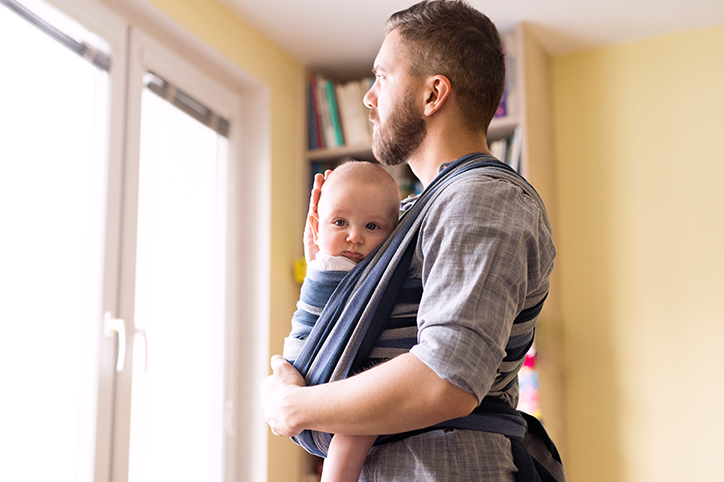When my third child was born I suffered from postpartum depression. Lack of sleep, feeding issues, and renegade hormones all played a key role in my experience.
For new mothers, experiencing mental health issues in the postpartum phase isn’t uncommon. According to Postpartumdepression.org, 70-80% of American women will experience the baby blues at minimum. However, many of us have also watched the baby blues wreak havoc on our partners.
Yes, men too can suffer from low mood and mental health issues after the birth of a child.
Due to the active and all-encompassing role of the mother in the whole baby-making process, the existence of postpartum depression in mothers is a widely acknowledged phenomenon. Much progress has been made in breaking the stigma surrounding postpartum depression (PPD) and the baby blues in new mothers. It is no longer uncommon to have these troubles come up as common topics of conversation, with women finding support in sharing and listening with one another. However, hearing about the experiences of men suffering from Paternal Postnatal Depression (PPND) is more rare. Many people might not even be aware that this condition exists.
According to postpartummen.com up to “1 in 4 new dads have PPND”. This makes it a fairly common occurrence, however, it may be difficult for men to realize that that’s what’s going on. Some of the same factors that are at play for women to have a disruption in mental health after the birth of a baby are also true for men. Things like changes in routine, sleep disturbances, and relationship issues within the family.
Typically, men take a bit of a backseat in the postpartum period. This may lead to them struggling to find their place in the new family dynamic, or feeling stress when it comes to finances or work. Men may also experience hormonal changes and have issues when it comes to bonding with the baby. If their partner is experiencing PPD, this is also a risk factor for men becoming depressed themselves.
As a society, we need to work on breaking down the stigma for men as well when it comes to the vulnerable period after birth. The mental health of all parties is imperative when it comes to the health of the family. This goes for the mother and the father. Ultimately, having one or both parents experiencing depression in those early years can be a huge challenge that can affect many facets of life. Despite the jabs thrown in comments sections about how the man is secondary to the woman in the postpartum period, the health of everybody in the family matters.
We should learn to check in on both parents after the birth of a baby, to ensure that they feel supported. Although we may have lost much of “the village” of the past, we can get it back by being there for our friends and family during these rough transition times. It’s important to also acknowledge that men may be struggling as well, since they may be far less likely to reach out for assistance if needed.
The first step we can take as a society is to become aware that this issue does exist for men. From there, we can work on the stigma surrounding mental health concerns in men, and mental health struggles in the whole family during the postnatal period.
